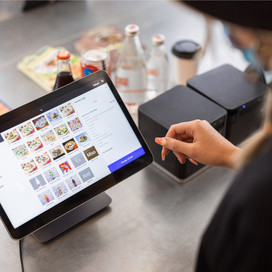Table of contents
Subscription offerings in the 2020s go way beyond just magazines and wine-of-the-month clubs. Today, subscription service models have entered the modern marketplace and are shaking up the way we sell. The eCommerce subscription service model is estimated by McKinsey to be a $12–$15 billion industry globally. According to Zuora, more than 70% of adults across 12 countries have purchased subscription services. In fact, the same research found that subscription business revenue is growing at a rate five times faster than traditional retail sales.
You may be wondering if you should jump on this growing trend with some subscription business ideas of your own. Before you can cash in, you’ll need to have a clear plan and strategy.
What is a subscription service?
A subscription service is a business offering to sell products or services on a set timeline, such as monthly or weekly. They come in one of three forms.
- Curation is a popular type of subscription offering. These can include items like clothing, skincare, or pet accessories. What makes these special is that the customer doesn’t always know what they’re getting, so surprising and delighting them is part of the experience. Popular curated boxes are bellabox, Hey Baker! and Cocktail Porter.
- Replenishment subscriptions is another fast-growing category. This is a recurring order of consumable household goods, such as groceries or household supplies. Examples include HelloFresh meal kits, Who Gives a Crap’s popular toilet paper subscriptions, Scratch pet food, and Good Pair Days personalised wine subscriptions.
- Access is the final type of subscription. Customers pay for access to content or a premium service, like free shipping, for a monthly fee. Netflix, Classpass, Amazon Prime and online newspapers are examples.
Who can implement subscription plans?
The popularity of subscriptions has plenty of big brands getting into the action, but any type or size of business can offer a program. We’ve seen a number of creative options when it comes to subscription-based businesses in recent years.
The popularity of subscriptions such as HelloFresh and the dozens of food and beverage monthly offerings gaining traction in the Australian market show that curation and replenishment plans are strong trends.
Why make subscription your business?
Subscriptions can add predictable sales outcomes to your business. You can gauge the health of your business by looking at your contracts and active subscribers, instead of relying on projections or estimates that are common with a typical retail structure.
You can also plan wholesale orders based on your current subscriber numbers, reducing the risk of having stale products that need to be discounted. And regular recurring income helps with cash flow, especially during slower seasons, so you can budget for expenses and investments in your business.
Subscriptions can also help you increase repeat business, as long as you regularly deliver a good experience. You can take time to build relationships with customers, personalising your offerings based on purchase history or feedback, and upselling or cross-selling new products or services. A subscription increases the customer lifetime value with long-term sales instead of the unpredictability of one-off purchases.
How to add a subscription model to your business:
1. Determine if a subscription model is the best fit
You should sell products or services that fit into one of three broad types. If your business sells bridesmaid dresses, for example, a subscription service probably doesn’t make sense since it’s not something most people would collect or need to be replenished. But if you offer puzzles, you might grow a customer base that is looking for a new monthly challenge.
2. Create your membership model
Start with how much you’ll charge. To price your subscription, consider the cost of the items you’re selling as well as the cost of your shipping materials, advertising and marketing expenses, and business costs, such as rent, payroll and fulfillment. A good rule of thumb is to make sure you have a 50% profit margin to sustain your business.
Pricing is an important part of your subscription strategy, and a one-size-fits-all approach could turn off some people, while leaving money on the table from your most engaged customers. One of the best ways to price your offerings is with a tiered model.
You can offer discounts for committing to a set amount of months, for example, or for special groups of customers, such as students. Then adjust your prices over time as you learn from your customers. If possible, keep your existing customers at their set plan, and only raise prices for new customers.
You can also consider the freemium model, which offers limited free access to some of your products and services, while enticing customers to sign up for premium access if they like your free items. An example of a freemium subscription service is LinkedIn, which offers anyone a free profile but provides higher levels of service to premium paid members.
You also have to set your cadence, such as weekly, monthly or quarterly deliveries. You can set up subscriptions with your desired cadence with Square Online Checkout.
Communicate cadence options to your customers, since they’ll want to know when and how often they’ll receive their subscription. For replenishment models, you can allow the customer to set the cadence.
3. Set terms and conditions
Create your terms and conditions by stating how your subscription works, how an auto-renewal works, and what a customer must do to cancel their subscription. Federal regulators have consumer protection laws that cover auto-renewals and cancellations. Auto-renewals must be clear and conspicuous, and cancellations must be made easy for the customer.
A good way to make sure that your customer understands your policies is with a “clickwrap” agreement, which requires the customer to check a box during the transaction stating that they agree to the terms and conditions.
4. Prepare inventory
Once you’ve got the foundation in place, it’s time to prep and plan for inventory. If you provide products, you’ll need inventory. If you use external vendors, they’ll need to provide you with the quantity and reliability you need. If you are making the items yourself, such as a coffee roaster that offers a monthly subscription to a new blend, you’ll have more control over your items.
5. Spread the word
Selling a subscription is about selling a relationship with your brand. You have to convey to the customer how your subscription will enrich their life. You can easily share details about your offerings by sharing your subscription checkout links with customers online.
Provide VIP touches, such as early access to new product releases. And personalise your offerings and outreach. Consumers expect their subscriptions to become more tailored over time, and 28% of curation and access groups said having a personalised experience is the most important reason they continue to subscribe.
With a subscription model, retaining customers is the lifeblood of success. To retain your paying subscribers, focus on high-quality customer service – without it, recurring revenue cannot be sustainable. Remember: it costs five times more to acquire a new customer than it does to keep an existing customer.
Engage with your customers as much as possible by sharing encouraging social media posts or asking for feedback on your offerings. A good experience can turn into recurring revenue, which is the foundation for your subscription service.
This article is for informational purposes only and does not constitute professional advice. For specific advice applicable to your business, please contact a professional.
![]()











